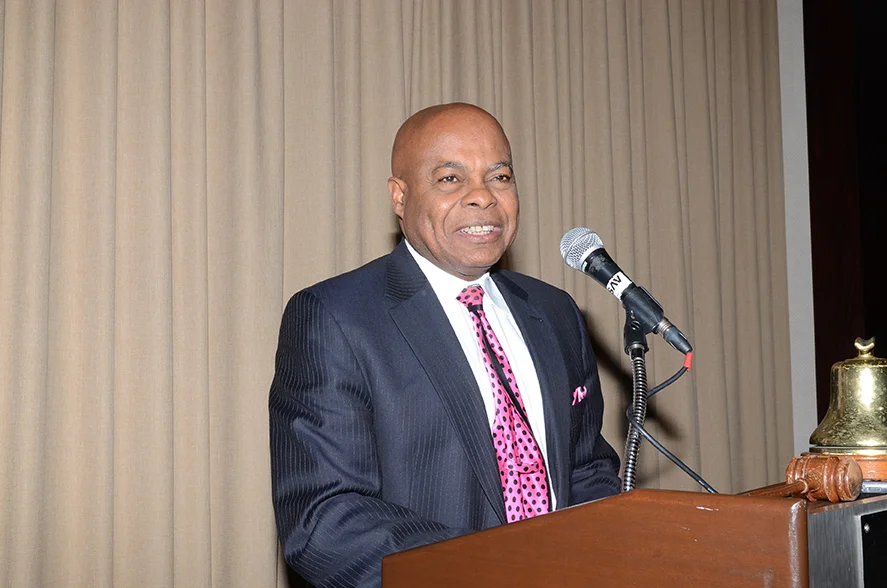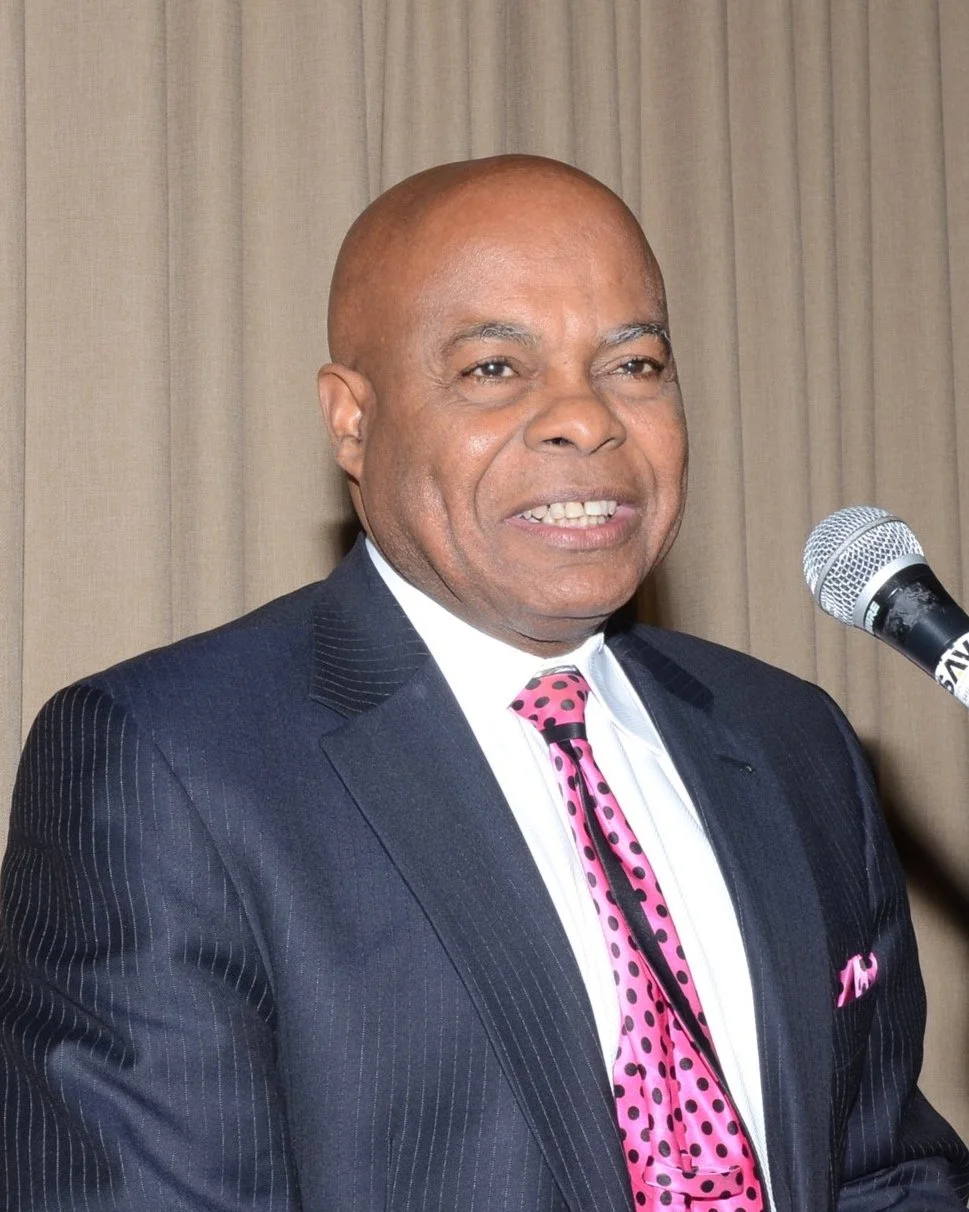Hard work key to success, judge tells lawyers and law students
For 11 years, Delos Davis was forced to study and practice law at the legal clerk level because no lawyer would hire him to article under them.
Frustrated, he applied to the Ontario Legislature in 1884 to pass a private member’s bill that would authorize him to practice in the province if he could pass the Bar examination. The appeal was granted and Davis finished first in his class of 13.
He was subsequently admitted to the Bar in 1886, becoming the second Black after Jamaican-born Robert Sutherland to practice law in Canada.
In his keynote speech at the 18th annual Canadian Association of Black Lawyers (CABL) awards gala last Saturday night, British Columbia (BC) Supreme Court judge Selwyn Romilly reminded Black law students and lawyers that they are standing on the shoulders of Davis and other Black legal trailblazers who were subjected to enormous challenges.
The awards ceremony was preceded by a continuing professional development conference. The theme was, ‘Still I Rise: Continuing Our Momentum Beyond the Barriers’.
“It’s my firm belief that only by understanding how far we have come that you will be able to be better prepared to prepare for the future and to continue our momentum beyond the barriers of yesteryear,” he said. “In my view, the struggle and eventual triumph of Davis epitomizes the theme of this conference. To the young Black lawyers and law students, I say to you that Delos Davis’ journey also demonstrates that persistence, determination and hard work are the keys to overcoming the barriers in your path.”
The first Black appointed to the BC provincial court in 1974 and the Supreme Court 21 years later, Romilly shared his challenging journey that started in Trinidad & Tobago where he was born in 1940.
“From a very young age, I wanted to be a lawyer,” said Romilly who graduated from Queen’s Royal College and came to Canada in 1960 with a student visa that had to be renewed annually. “My father always impressed on his children that they couldn’t be Black and stupid.”
Until his brother – Valmond -- joined him at the University of British Columbia (UBC) two years later, Romilly was the only Black student in law school. Once arrested briefly for ‘Running While Black’, he also had to contend with the failure of three Trinidadian students to graduate from UBC’s law school two years before he entered the institution.
“My days in law school were hellish and the most stressful in my life,” he pointed out. “The pressure on me to succeed was intense. I not only had to do well, but I felt I had to do better. Were it not for a few of my close friends, I would not have made it through law school.”
Unable to secure an apprenticeship in Vancouver after graduating in 1966, Romilly -- with the help of a classmate whose wealthy parents convinced their lawyer to offer him an opportunity -- articled in Kamloops. Offered a position at the firm for ‘starvation wages’, he left and headed to Prince Rupert to practice.
“On my way there, I stopped off at Smithers which is about 800 miles from Vancouver and met the only lawyer there within a 200-mile radius who said he didn’t have a vacation in 13 years,” recalled Romilly. “He made me an offer I couldn’t refuse and I worked with him for two years before starting my own thriving practice there.”
Following the introduction of a new provincial court act in British Columbia in the early 1970s that led to the phasing out of lay judges, the brightest and best legal minds were sought to sit on the Bench.
After a third invitation, Romilly – with the support of his father who advised him to accept the offer – made history at age 34.
“I didn’t get that position because I was one of the brightest or the best,” he said. “I got it because I was a hard worker and I was in the north where there were very few lawyers. In other words, it was mainly through luck that I got that position. I just happened to be in the right place at the right time.”
In the last three decades, Romilly has contributed significantly to the development of the law in BC. Several of his judgments have been summarized in the Weekly Criminal Bulletin, the BC Digest of Criminal and Sentence Cases and the Charter of Rights Digest and in 1991, he was voted by BC lawyers as one of the four best provincial court judges in the province.
While proud of he and his brother’s success, Romilly cautioned that it should be interpreted to mean that Canada is an egalitarian society.
Graduating from UBC in 1969, the younger Romilly is a BC provincial court judge.
“Our successes are but small steps on the road to true equality,” he added. “There is a still lot of work to be done to achieve true equality in this country. As a judge, I recognize that the image of Canada is changing and we now have an image of a country that’s respected for its intolerance of prejudice…Merely being determined to make ours a more egalitarian society would be an enormous tribute to our capacity, a powerful inspiration to frustrated humanity and a wonderful opportunity for self-gratification.”
Marsha Henry, Ernest Tuckett and Verlyn Francis were this year’s award winners.
Marsha Henry (Photo by Ron Fanfair)
An Osgoode Law School graduate, Henry completed her Master’s in Taxation at the University of Waterloo and the Master of Science taxation program at Fordham Graduate School of Business. The Community Service Award recipient is employed at Deloitte Tax LLP in New York.
DuPont Canada’s general counsel since June 2012, Tuckett is a fierce advocate for diversity in the legal profession.
“I am honoured to be recognized for what I have contributed in the short time I have been here,” said the American-born attorney who was presented with the Pathfinder Award.
Ernest Tuckett (Photo by Ron Fanfair)
Called to the Bar in 1997, Antiguan-born Francis is a sole practitioner specializing in real estate, family law and estates. She conceived the idea for the establishment of the annual Gold Key award in 2001 to honour outstanding alumni who have made valuable contributions to the law school and the legal community.
Francis, who served as the student caucus chair at Osgoode where she graduated in 1995, was unable to attend the event because of illness.
The CABL has been quite active since its formation in 1996. It has collaborated with the University of Windsor Faculty of Law to establish the Julius Isaac scholarship to honour the first Black to be named to the Federal Court of Canada and the first Black to be appointed Chief Justice of the Federal Court. He passed away four years ago.
The organization has also recognized Black Bay Street partners, Canada’s Black judges and Black women who have positively contributed to law and the legal professional, and made submissions on legal, equity and social justice issues to the federal and provincial governments.
Four years ago, the organization – led by Arleen Huggins and her hard-working committee -- established a chapter in British Columbia.







